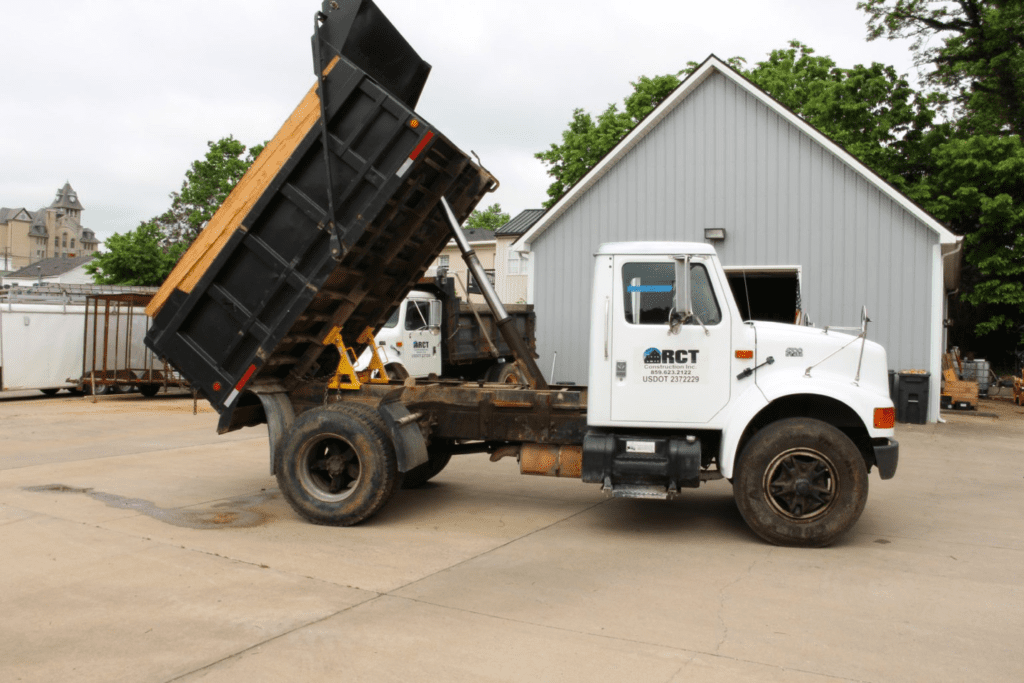Hydraulic hoses act as the lifelines of a dump truck’s hydraulic system, transmitting fluid power to various components. Proper maintenance is not just a matter of vehicle upkeep; it’s a critical aspect of ensuring the safety of operations and preventing costly breakdowns. In this blog, we will discuss the importance of hydraulic hose maintenance in dump trucks, providing essential tips to ensure peak performance, safety, and longevity.
Common Issues Related to Hydraulic Hoses
Before we dive into the maintenance tips, it’s important to understand the common issues related to hydraulic hoses.
- Wear and Tear: Hydraulic hoses are subjected to constant movement and pressure. Over time, wear and tear can occur, leading to potential leaks and decreased efficiency.
- Abrasion: Dump trucks operate in challenging environments and hoses are vulnerable to abrasion from contact with abrasive surfaces. This can compromise the integrity of the hoses and result in failures.
- Improper Installation: Incorrect installation, such as twists or kinks in the hose, can lead to stress points and, ultimately, failure. Proper installation is crucial for the longevity of hydraulic hoses.
- High Temperatures: Operating in extreme conditions can expose hydraulic hoses to high temperatures, causing the rubber to deteriorate and potentially leading to leaks.
Tips for Effective Hydraulic Hose Maintenance
· Regular Inspections
Conduct frequent visual inspections of hydraulic hoses to identify any signs of wear, abrasion, leaks, or damage. Look for bulges, kinks, or exposed reinforcement wires. Early detection of issues allows for timely intervention and prevents more significant problems down the line.
· Proper Installation
Ensure that hydraulic hoses are correctly installed, following the manufacturer’s guidelines and specifications. Improper installation can lead to premature wear and tear, compromising the overall integrity of the hydraulic system.
· Correct Hose Selection
Choose hydraulic hoses that are specifically designed for the intended application and working conditions. Consider factors such as pressure ratings, temperature resistance, and compatibility with hydraulic fluids. Using the right hose for the job significantly extends its lifespan.
· Protect from Abrasion
Implement measures to protect hydraulic hoses from abrasion, which is a common cause of damage. Use hose guards, sleeves, or routing clamps to shield hoses from contact with abrasive surfaces, sharp edges, or other equipment components.
· Avoid Twisting and Kinking
Ensure that hydraulic hoses are installed without any twists or kinks. Twisting and kinking can lead to internal damage and compromise the hose’s ability to withstand pressure, potentially resulting in leaks or failure.
· Proactive Replacement
Establish a proactive replacement schedule for hydraulic hoses based on usage, age, and the manufacturer’s recommendations. Preventive replacement is more cost-effective than dealing with unexpected failures during critical operations.
· Maintain Correct Fluid Levels
Regularly check and maintain the hydraulic fluid levels according to the manufacturer’s specifications. Inadequate fluid levels can lead to increased temperatures, reducing the efficiency and lifespan of hydraulic hoses.
· Consult with Experts
When in doubt or faced with complex hydraulic system issues, consult with hydraulic system experts or the equipment manufacturer. Their expertise can provide valuable insights and guidance for maintaining the hydraulic hoses in optimal condition.

At BedLock Safety Products, LLC, our goal is to keep dump truck equipment and repair personnel safe. We provide truck repair equipment, such as truck bed locks, dump body safety stands, truck body props, and more. Explore our complete range here or contact us for more details.
